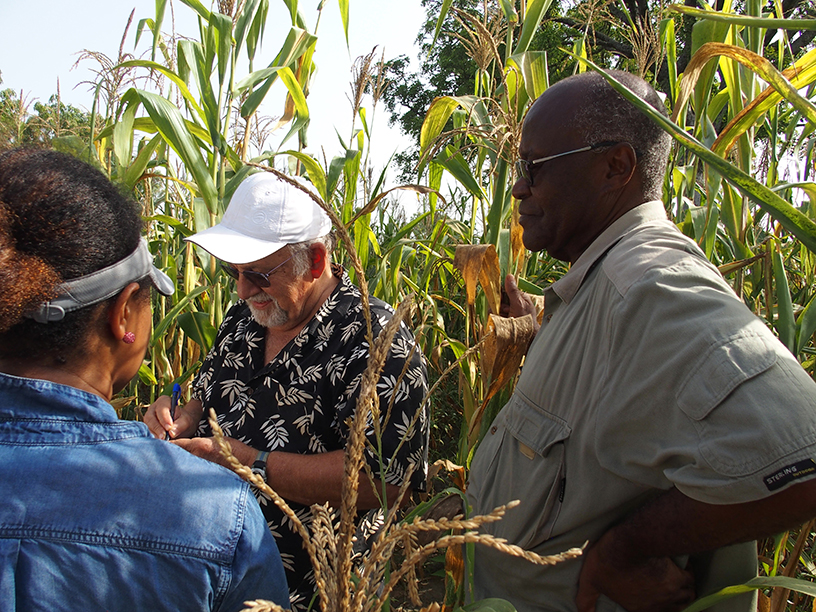By Michael Loizzo
Agriculture in sub-Saharan Africa has improved greatly over the past two-decades, according to data from the World Bank, but more work is needed. That is the message from Dr. Pedro Sanchez, a research professor of tropical soils in the UF/IFAS soil and water sciences department. He and Dr. Thomas Jayne, a colleague at Michigan State University, recommend several policies the region must undertake to improve sustainability. Their recommendations are published in the latest issue of Science.
“Many people think agriculture in sub-Saharan Africa (SSA) is not improving,” Sanchez said. “However, agricultural production value there since 2000 has seen the highest rate increase than any other part of the world.”
The reason, Sanchez and Jayne pointed out, is the amount of land used for agriculture has increased. However, this expansion has environmental impacts, and land is becoming scarcer and more expensive. Farmers in SSA will need to produce more food with less land, the authors say. That means using improved seeds and focusing on soil health.

“Plant breeders have developed seeds that can grow in harsh conditions and produce higher yields,” Sanchez said. “But those seeds need healthy soil.”
To build soil health, the pair suggest the better use of fertilizer by tailoring it to the individual farmer’s field conditions. Organic inputs such as manure, crop residue left after a harvest, and the use of cover crops are possible options for SSA farmers.
The final key to better output from existing farmland is in agricultural research and development.
“There are a lot of challenges in agriculture when it comes to increasing yields, maintaining the health of the land, and protecting the environment off the farm,” Sanchez said. “Governments and non-government organizations need to be there with expertise and guidance. They also need to have ongoing conversations with the farmers.”
Dr. Pedro Sanchez is the 2002 World Food Prize Laureate. The honor recognizes his work for pioneering ways to restore fertility to some of the world’s poorest and most degraded soils. He has spent many years working with African farmers including ten years as director general of the World Agroforestry Centre (ICRAF) in Nairobi, Kenya.
 0
0
